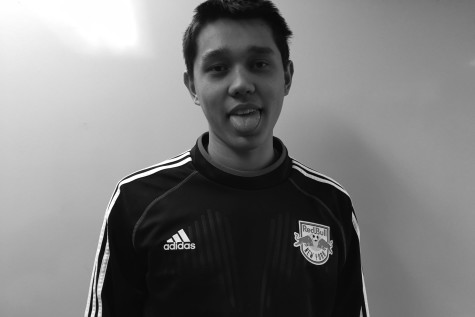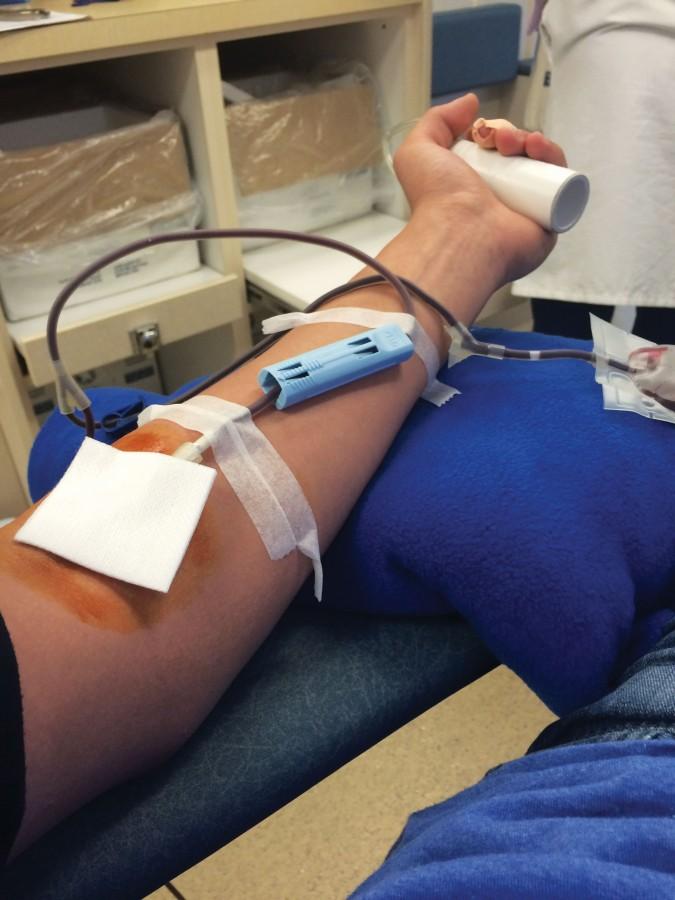A (blood) type of hero
Annual blood drive prompts students to save lives
Donors increase blood flow in the arm by squeezing or rolling a heated object.
Every two seconds someone is in need of a blood donation, according to Memorial Blood Centers (MBC). From premature infants and organ transplant receivers to cancer patients and accident survivors, there is never a shortage of blood recipients.
Knowing that, by donating blood, up to three people’s lives can be saved will almost always leave the donor with a lasting feeling of satisfaction.
In order to donate, a donor will have to volunteer about one hour of their time. This hour consists of a quick physical check and health interview, followed by ten minutes of physically donating blood.
There are restrictions in regard to donors’ and recipients’ health and safety. A participant must be at least sixteen, weigh a minimum of 110 pounds, be antibiotic-free for more than 24 hours, and must be free of cold/flu-like symptoms for 72 hours.
Organizations like MBC are able to collect an average of 10,000 units of blood for every school-sponsored blood drive they organize. For every unit of blood collected, MBC displays their gratitude by donating $10 in educational scholarship funds.
Since 1997, Blake has hosted two blood drives every year, and participants have donated a cumulative 559 units of blood (one unit of blood per person). In December, MBC is hoping to collect at least 31 units of blood from Blake students and faculty alone.
Christin Winkler, who started donating at seventeen, has chosen to donate blood every year since. After undergoing an experience in which she needed a blood transfusion, Winkler has gained a greater appreciation for donors. Winkler encourages people to donate. “It’s pretty cool to know that you are giving back to society in a way money can’t buy,” she says.
Winkler, along with many other frequent donors, such as Steve Kaback and Frank Sachs, recommend eating a solid breakfast and dinner the day of donation, as well as drinking lots of water.
Reece Sanders ‘17 encourages donating, saying, “It’s a good thing to do because if you’re healthy enough, there’s so many people who need blood, and if you have the capability to donate you should.”
Donating can be convenient for everyone. MBC’s “Blood-Mobiles,” which are large vans and buses accessorized with the necessary medical equipment, are accessible throughout the Twin Cities and can be located on MBC’s website (mbc.org). Blake’s first blood drive of this year will be on December 4 between 9:00 a.m. and 1:00 p.m. Email Maxine Whitely ‘16 or Lucy Nelson ‘16 to sign up.

Deniz has been an "editor" since the beginning of his junior year and declares himself the "bananagram king." He enjoys the color brown and long walks...








